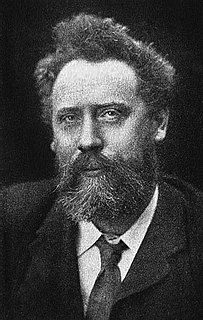A Quote by Julius Caesar
Which death is preferably to every other? 'The unexpected'.
Quote Topics
Related Quotes
[N]either in war nor yet at law ought any man to use every way of escaping death. For often in battle there is no doubt that if a man will throw away his arms, and fall on his knees before his pursuers, he may escape death; and in other dangers there are other ways of escaping death, if a man is willing to say and do anything. The difficulty, my friends, is not in avoiding death, but in avoiding unrighteousness; for that runs faster than death.
What we put into every moment is all we have. You can drug yourself to death or you can smoke yourself to death or eat yourself to death, or you can do everything right and be healthy and then get hit by a car. Life is so great, such a neat thing, and yet all during it we have to face death, which can make you nuts and depressed.
There is a future which is predictable, programmed, scheduled, foreseeable. But there is a future, l'avenir (to come) which refers to someone who comes whose arrival is totally unexpected. For me, that is the real future. That which is totally unpredictable. The Other who comes without my being able to anticipate their arrival. So if there is a real future, beyond the other known future, it is l'avenir in that it is the coming of the Other when I am completely unable to foresee their arrival.
Every act of irreverence for life, every act which neglects life, which is indifferent to and wastes life, is a step towards the love of death. This choice man must make at every minute. Never were the consequences of the wrong choice as total and as irreversible as they are today. Never was the warning of the Bible so urgent: 'I have put before you life and death, blessing and curse. Choose life, that you and your children may live.'
Humanity today is not safe in the presence of humanity. The old cannibalism has given way to anonymous action in which the killer and the killed do not know each other, and in which,indeed, the very fact of mass death has the effect of making mass killing less reprehensible than the death of a single individual. In short, we have evolved in every respect except our ability to protect ourselves against human intelligence. Our knowledge is vast but does not embrace the workings of peace.
Oh and I thought, as i was dressing, how interesting it would be to describe the approach of age, and the gradual coming of death. As people describe love. To note every symptom of failure: but why failure? To treat age as an experience that is different from the others; and to detect every one of the gradual stages towards death which is a tremendous experience, an not as unconscious, at least in its approaches, as death is.
If I had my life over again I should form the habit of nightly composing myself to thoughts of death. I would practise, as it were, the remembrance of death. There is no other practice which so intensifies life. Death, when it approaches, ought not to take one by surprise. It should be part of the full expectancy of life. Without an ever-present sense of death life is insipid.
It is a simple matter to see the obvious, to do the expected. The tendency of the individual life is to be static rather than dynamic, and this tendency is made into a propulsion by civilization, where the obvious only is seen, and the unexpected rarely happens. When the unexpected does happen, however, and when it is of sufficiently grave import, the unfit perish. They do not see what is not obvious, are unable to do the unexpected, are incapable of adjusting their well-grooved lives to other and strange grooves. In short, when they come to the end of their own groove, they die.









































